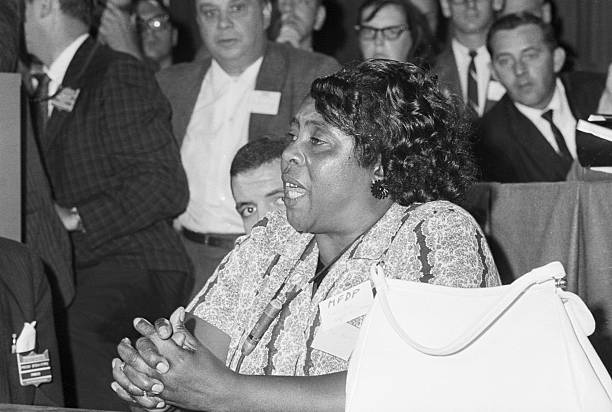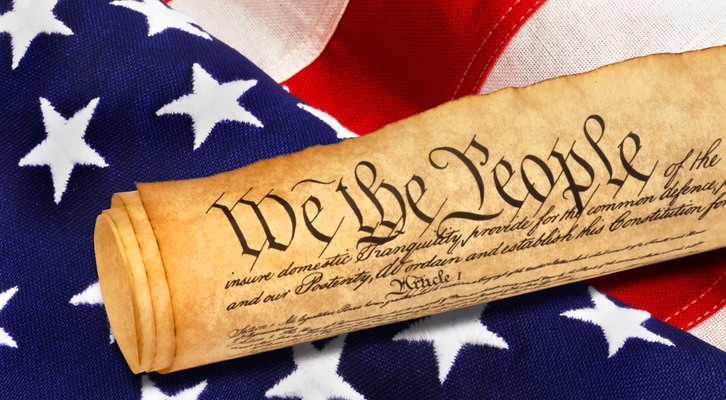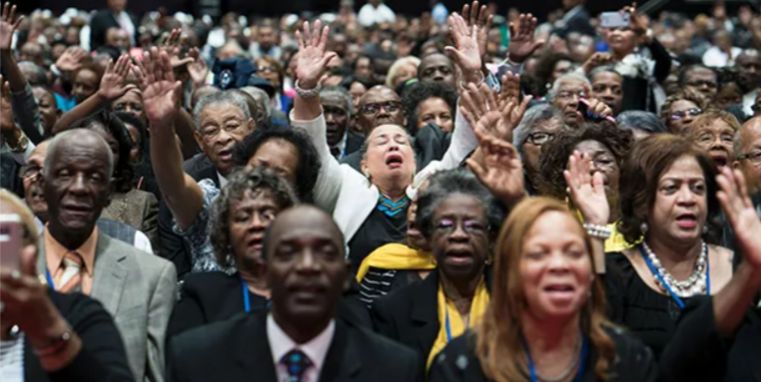(ThyBlackMan.com) “Disruption” is a term that some of us have grown weary of given the frequency with which it is applied, often undeservedly, to any seemingly novel business concept. When used properly, disruption refers to a genuinely transformative phenomenon. In the context of business, it might be a groundbreaking product or innovatory process that promises to upend the way in which commerce is conducted. In short, disruption connotes a decisive shift in the status quo.
At its apotheosis, disruption transcends business. It can have implications that are infinitely more important than some technological advance that avails better products to consumers more cheaply, conveniently, or quickly. Disruption can herald societal conversion. In the case of Fannie Lou Hamer, disruption meant eradicating the intractable foundations of political, social, and economic life in the South of the 1960s and early 1970s.

Fannie Lou Hamer’s life seems almost to have been intentionally designed to conspire against her. Born dirt poor in Mississippi – the 20th of her parents’ 20 children – Hamer didn’t have the Ivy League education of Constance Baker Motley. She lacked the political connections and social sophistication of Dorothy Height.
Perhaps most importantly, Hamer was the opposite sex of Martin Luther King, Jr. (For her part, the legendary Ella Baker was critical of sexism in the civil rights movement.) Childhood polio made Hamer less ambulatory than other activists.
Yet, what Hamer lacked in social status she more than compensated for in dogged determination. She became aware of the nascent civil rights movement while toiling on a cotton plantation in the 1950s. (She could pick as much as 300 pounds per day by her early teens.) Hamer would begin to travel to absorb the speeches of racial justice warriors at Regional Council of Negro Leadership (RCNL) conferences. Such gatherings awakened in her an unquenchable drive to attack racial discrimination at its core.
Securing voting rights for African Americans became Hamer’s obsession. Her efforts yielded the ultimate hallmark of effectiveness: “On the 10th of September 1962, sixteen bullets was fired into the home of Mr. and Mrs. Robert Tucker for me.” Domestic terrorism has always been the clearest sign of the success of human rights activism.
Of course, even the exercise of societal control over African Americans could pale in comparison to the intimacy of individual trauma. Hamer’s body would endure many savage beatings; her psyche withstood incessant verbal and emotional abuse. That wasn’t all. Hamer and her husband strongly desired to have children. Yet, in the ultimate violation of biological rights, a white doctor performed a hysterectomy on her – without her consent – while she was having surgery to remove a tumor.
There were untold numbers of so-called “Mississippi appendectomies” to which Black women were subjected. State-sanctioned forced sterilization of Black women was a common way to control the size of the Black population in the South, especially among the poor.
Fannie Lou Hamer died 46 years ago this month. Though she no biological children, she and her husband adopted four daughters. (One of them died at age 22 when she was denied medical care due to Hamer’s human rights work.) Beyond those children, Mrs. Hamer has millions of non-biological heirs; I am one of them.
It is impossible to overstate that those who made America better for African Americans made America better for all Americans. There is not a single civil rights advance that solely benefitted us. Not one. For example, Hamer was a co-founder (with Shirley Chisholm, Gloria Steinem, Betty Friedan, and others) of the National Women’s Political Caucus. The Caucus, which bills itself as “multi-partisan”, supports women of all races who seek to hold public office.
Known for her immortal aphorism – that she was “sick and tired of being sick and tired” – Hamer refused to allow physical or psychological impairment to deter her from running the race in which God had entered her. Her metaphysical anatomy carried her forward when her physiology was failing. Her spiritual insight enabled her to see well past the finite boundaries of her time.
With calm determination, Hamer declared: “One day, I know the struggle will change. There’s got to be a change – not only for Mississippi, not only for the people in the United States, but people all over the world.” Today, 106 years after her birth, Fannie Lou Hamer’s voice calls from beyond the grave, compelling us to ensure that her work was not in vain.
Written by Larry Smith

















This black woman was, perhaps one of the last true Civil Rights leaders black America had. She actually fought for black America. Today’s so-called black leaders, where ever they exists, are nothing but sell out, greedy self seeking opportunists who do nothing for black America but will speak up for gays, lesbins, Hispanics, white women,etc.